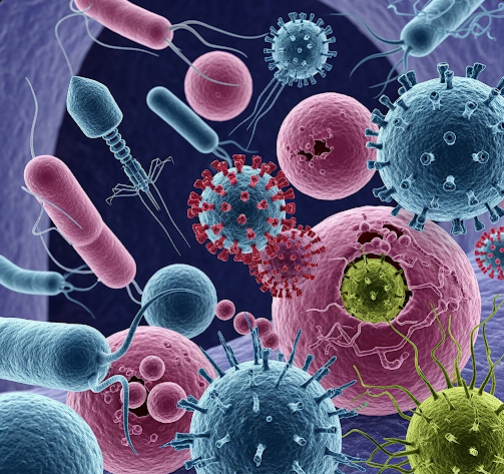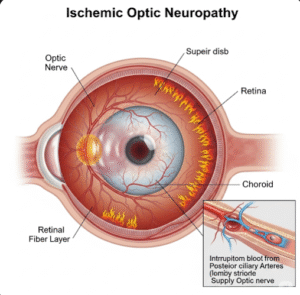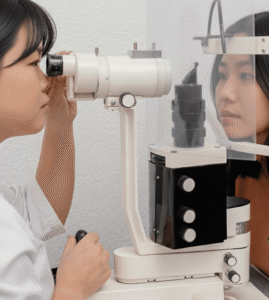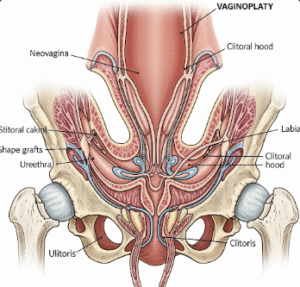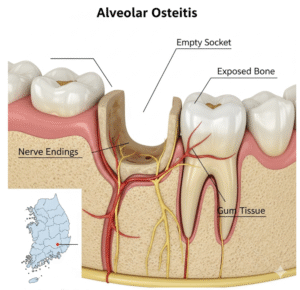Overview
Infectious diseases are illnesses caused by pathogenic microorganisms such as bacteria, viruses, fungi, or parasites. These diseases can spread directly or indirectly from one person to another, animals, or the environment. Infectious diseases range from mild conditions like the common cold to severe, life-threatening illnesses such as tuberculosis or COVID-19. In Korea, a well-developed public health infrastructure, advanced medical facilities, and robust disease surveillance systems play critical roles in the prevention, diagnosis, and treatment of infectious diseases, helping to protect public health effectively.
What Are Infectious Diseases?
Infectious diseases occur when harmful microorganisms invade and multiply within the body, triggering an immune response. The causative agents can be transmitted via various routes including respiratory droplets, direct contact, contaminated food or water, vectors like mosquitoes, or sexual contact. Infectious diseases may be acute or chronic, localized or systemic, and can affect various organs and systems.
Symptoms
Symptoms of infectious diseases vary widely depending on the type of pathogen and the affected body system but often include:
- Fever and chills
- Fatigue and weakness
- Muscle aches
- Respiratory symptoms such as cough, sore throat, or shortness of breath
- Gastrointestinal issues like nausea, vomiting, diarrhea
- Skin rashes or lesions
- Swollen lymph nodes
- Specific signs related to the infected organ (e.g., jaundice in hepatitis)
Causes
The causes of infectious diseases are diverse:
- Bacteria: Single-celled organisms causing infections like pneumonia, tuberculosis, or strep throat
- Viruses: Tiny pathogens responsible for illnesses such as influenza, COVID-19, and hepatitis
- Fungi: Organisms causing infections like candidiasis or athlete’s foot
- Parasites: Organisms like protozoa or worms causing malaria, giardiasis, or helminth infections
Risk Factors
- Weakened immune system due to age, illness, or immunosuppressive therapy
- Poor sanitation and hygiene
- Close contact with infected individuals
- Travel to endemic areas
- Lack of vaccination
- Crowded living or working conditions
- Malnutrition or chronic diseases
Complications
- Spread of infection leading to systemic involvement (sepsis)
- Chronic health issues such as organ damage
- Disability or death if untreated
- Outbreaks and epidemics impacting communities and economies
- Development of antibiotic resistance
Prevention
- Vaccination programs against preventable infections
- Hand hygiene and respiratory etiquette
- Safe food and water practices
- Vector control measures (e.g., mosquito nets)
- Use of personal protective equipment (PPE) in healthcare settings
- Public health surveillance and rapid response to outbreaks
- Health education and awareness campaigns
Treatment Options in Korea
Korea’s advanced healthcare system offers comprehensive approaches to managing infectious diseases:
- Diagnostics:
- State-of-the-art laboratories providing rapid and accurate pathogen identification
- Molecular testing and imaging for precise diagnosis
- Medical Treatment:
- Use of antibiotics, antivirals, antifungals, and antiparasitic medications based on the infection type and sensitivity patterns
- Supportive care including hydration, oxygen therapy, and symptom management
- Infection Control:
- Strict hospital infection control protocols
- Isolation and quarantine measures during outbreaks
- Contact tracing and community interventions
- Public Health Initiatives:
- National immunization schedules and campaigns
- Travel health services and advisories
- Collaborative research and development of new treatments and vaccines
Korean infectious disease specialists work closely with global health organizations to monitor emerging pathogens and implement evidence-based strategies to safeguard population health.

